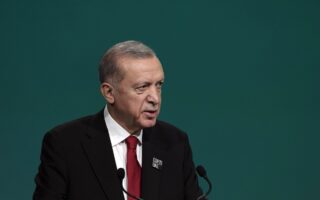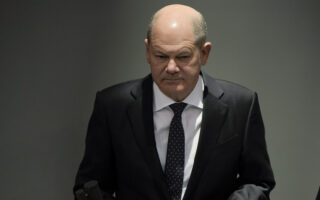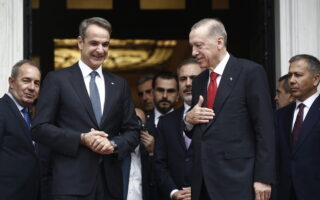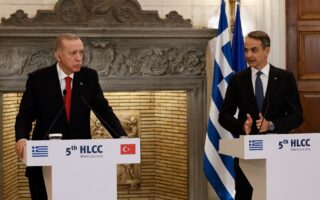Athens faces a demanding foreign policy agenda in 2024
Greek-Turkish relations and meetings between Mitsotakis and Erdogan expected to dominate
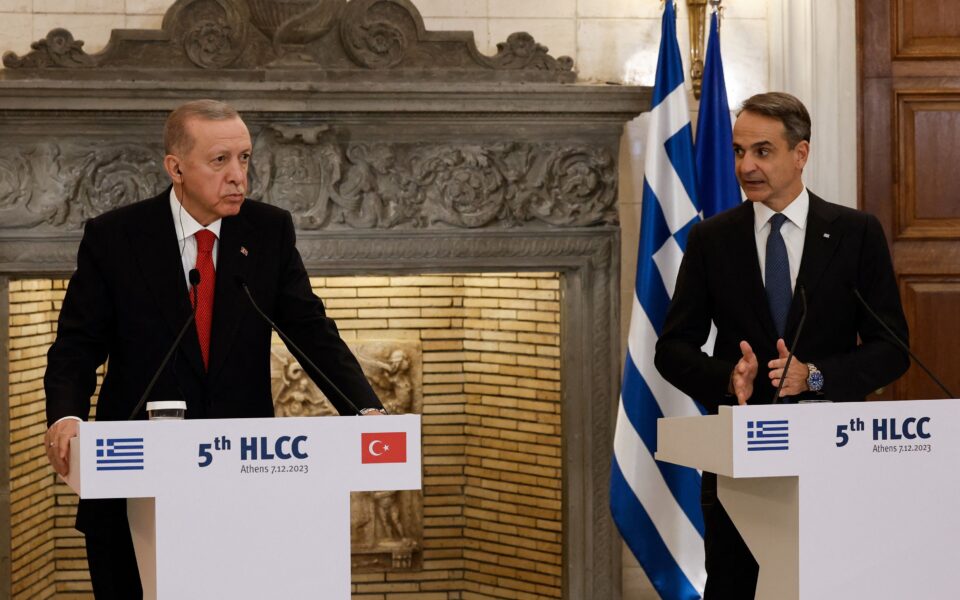
Substantial developments are anticipated in foreign policy and defense issues in 2024. Not least among them are the contacts between Greece and Turkey, which will be dominated by Prime Minister Kyriakos Mitsotakis’ meetings with President Recep Tayyip Erdogan in Ankara (or Istanbul) in April and on the sidelines of the NATO summit in Washington in July.
They will be the culmination of a series of consultations that are likely to result in some form of meeting with the ideal goal of bringing disputes over maritime zones in the Aegean to international justice.
The year will also be crucial for the European perspective of the Western Balkans, where Athens and the Mitsotakis government have invested heavily.
However, the case of Fredi Beleri, the ethnic Greek elected mayor of Himare in southern Albania, is creating obstacles to this policy, as the government in Tirana is still looking for a solution to the deadlock it has created.
The front of the Middle East-North Africa region, which has taken on a very important dimension in recent years, mainly due to the Turkish expansion of influence (Libya) and the turmoil caused by the war in Gaza, will remain a headache and a puzzle without a defined answer for Athens. Needless to say, February marks two years since Russia’s invasion of Ukraine and managing the impact of the crisis in the east of the EU is another problem for Athens.
Against this broad backdrop, the main challenge of Greek foreign policy will be the need for closer union at the EU level, hence the need for simplification and accelerated decision-making. Whether or not qualified majority voting on foreign policy issues (i.e. the annulment of the veto power) goes ahead, after the June European elections and the new institutions that will subsequently emerge in the EU, Europe must take decisions allowing for its more efficient functioning.
Decisions are also expected that may determine the qualitative development of the Hellenic Armed Forces. Apart from armaments (letter of acceptance for the F-35 fighters, options for strengthening the Navy and decisions on cutting-edge technological systems), the government’s main priority is to transform the Hellenic Aerospace Industry (EAV) into reliable support for the Armed Forces’ systems as well as restructuring Greek Defense Systems (EAS). To this end, Defense Minister Nikos Dendias is in early 2024 expected to submit a relevant bill.
For its part, the National Security Governmental Council (KYSEA) will decide on the new chief of the General Staff, who will replace Konstantinos Floros.
